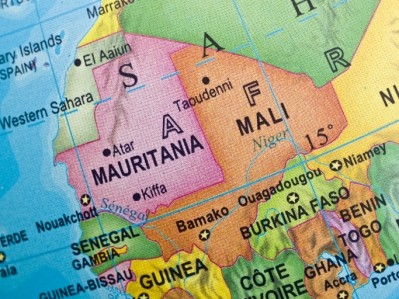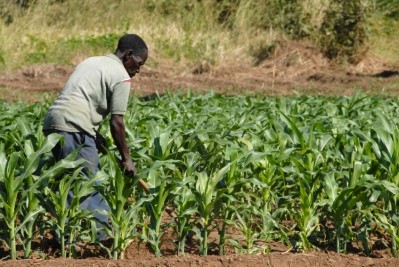"African poultry sector to reach Brazil levels by 2019" - Alltech says global feed compounders are missing out

FeedNavigator.com heard from Aidan Connolly, Alltech vice president, ahead of a forum on the promise of Africa in terms of agribusiness development at the company’s international symposium in the US next month.
Africa is the opportunity
Connolly said he is shocked at how minute the interest level is from large feed compounders, particularly European based ones, in Africa, considering the scale of development in the farming and livestock sectors over the past few years.
“Africa is on the move from a continent beleaguered by war and famine. It is the opportunity. It should no longer be viewed with jaundiced eyes,” he said.
Alltech’s Global Feed Tonnage Survey for 2013 showed Africa as the fastest growing feed producer in the world, with 17% hike on 2012 figures, and reaching 31 million metric tons in 2013.
South Africa is the continent’s leader, and it currently sits at number 21 on the global list with 11.16 million tons. Other African countries with production increases included Cote d’Ivoire, Senegal, Mauritius and Namibia.
“Some of the major players in the global feed industry tend to sit back and take the wait and see approach until the business is proven.
But they need to act now, move into Africa in greater numbers and start operating feed mills to complement the premix export side of their African orientated business,” said Connolly.
African dairy and poultry sectors booming
Revenues from hikes in commodities such as iron ore and other minerals over the past few years have generated greater wealth in Africa and boosted gross domestic product (GDP) levels.
“The agribusiness is benefitting from this increasing prosperity. A truly industrialized dairy and poultry farming sector in Africa is five years away with the poultry industry set to reach the level of production in Thailand, Brazil, China or the US by 2019.
The scaling up of an aquaculture industry in Africa is probably a little longer in the coming – we are looking at six years in terms of reaching international equivalency,” added the Alltech VP.
Connolly said the pork sector in Africa is lagging way behind the other segments in that it is not as cost effective in terms of feed conversion in the way the poultry sector is and it “probably won’t reach industrialization for at least another 15 to 20 years, if at all.”
Feed quality
But, the Alltech VP said the quality of the feed generated on site in African farm operations currently tends to be quite low – a very bland mix of ingredients with the feed produced in batches when needed.
While education drives around animal nutrition in Africa are lacking, the best practice manual in feed manufacture, published by the International Feed Industry Association (IFIA) in conjunction with the UN’s Food and Agriculture Organization (FAO), has been widely distributed throughout the continent, he said.
This is an indicator, then, of an interest from farmers in feed quality optimization, said Connolly.
Cheaper milk, meat and eggs
Farm yields need to be increased but proficient farm businesses producing primary produce of grains, flowers and fruit are cropping up all over the continent, he said.
“Of course infrastructure on logistics and storage of crops and produce needs to improve, transport links need modernization, there needs to be greater take-up of innovative farming techniques and farmers need to gain access to better quality seeds.
But if farms can continue to scale up the production of fiber, grains such as corn and soybean and protein sources, cheaper milk, meat and eggs will result. The benefits for the livestock sectors and for consumers all over the continent will be immense,” said Connolly
The opportunities for international agribusiness companies are vast.
He cautions though that foreign investment in the agribusiness in Africa, if not carried out in a culturally sensitive manner, can generate a huge amount of negativity on the continent. “The Chinese model of leasing land and then bringing in Chinese management and Chinese workers is receiving a huge amount of backlash.”













